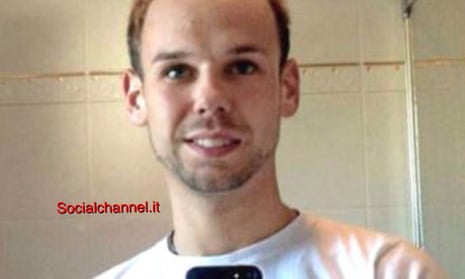Britain’s most senior psychiatrist has warned airline authorities to avoid a kneejerk reaction to the crash of the Germanwings flight, insisting that depression should not lead to a lifetime ban for commercial airline pilots.
The intervention came as it was reported that Andreas Lubitz, the co-pilot believed to have deliberately guided Flight 4U9525 into the Alps, killing all 150 on board including three Britons, had secretly sought treatment for vision problems that may have been linked to his history of mental illness.
Claims that Lubitz, 27, suffered a prolonged period of severe depression in 2008 and may have concealed continuing problems have prompted calls for those with a history of the disorder to be prevented from flying for commercial airlines.
In a sign of continued nervousness in the light of the tragedy, there were reportson Saturday of pilots offering personal assurances to passengers. One woman tweeted: “Pilot on my @Delta flight announces he and co-pilot are ex-military and ‘we both have wives and kids and are very happy’.”
Professor Simon Wessely, who is president of the Royal College of Psychiatrists and an adviser to the British army, urged civil aviation authorities and airlines to avoid repeating the panicked reaction that has often followed similarly shocking cases, such as the crimes of the Manchester GP Dr Harold Shipman.
Since the crash questions have been raised about European Union regulations that permit pilots to fly for commercial airlines a minimum of four weeks after symptoms of depression have been resolved. Pilots are also allowed to fly if they are free of symptoms but on approved antidepressants.
Civil Aviation Authority documents seen by this newspaper estimate that around 100 commercial pilots in the UK have some history of depression, with 42 currently on medication.
Wessely told the Observer: “It is not a good idea to rush; it is like the response to Dr Shipman, an utterly bizarre and unpredictable event is not a good basis of policy. The procedures that they then brought in would not have prevented Shipman.
“I have dealt with some pilots with depression and when they recover they are still monitored. But the two I have dealt with returned to very successful careers.
“Why should they not? What does cause trouble is saying that if you have ever had a history of depression then you should not be allowed to do whatever. That is wrong, as much as saying that people with a history of broken arms shouldn’t be allowed to do something.”
Wessely added his voice to those of mental health charities who have raised concerns about the media’s reporting of the crash.
He said: “We are all concerned. There are two reasons why: there isn’t a link between depression and aggressive suicide, if that is what this is. There isn’t normally such a link. And second, because of some of the ridiculous things that are said.
“Piers Morgan said that it was a disgrace that a man with acute depression was allowed to fly. Well, they are not allowed to fly. There may have been some fault in the procedures that let this happen, but they are not allowed to fly.”
The investigation into the circumstances leading to the tragedy is continuing, with prosecutors announcing on Friday that they had found a torn-up doctor’s note covering the day of the disaster during a search of Lubitz’s homes in Düsseldorf and in the town of Montabaur.
No suicide note or claim of responsibility had been found, prosecutors said, but they claimed the evidence uncovered so far supported the theory that the pilot was hiding an as yet undisclosed illness from his employer.
On Saturday the New York Times reported claims from two sources said to be close to the investigation who claimed Lubitz had sought treatment for vision problems that may have jeopardised his ability to continue working as a pilot. One source told the newspaper the authorities had not ruled out the possibility that the vision problem could have been psychosomatic.
It was also reported that Lubitz’s father said he had been left “completely destroyed” by the theory that his son deliberately flew the Airbus A320 into a rocky ravine in the southern Alps on Tuesday.
Bernard Bartolini, mayor of the village of Prads-Haute-Bléone near the crash site, met the co-pilot’s family on Thursday, after the public prosecutor had spoken to victims’ families to break the news that the crash may not have been an accident.
Bartolini, who said that Lubitz’s family had travelled to the area before news of their son’s apparent actions had been disclosed, said: “The father was beaten, he is a man completely destroyed. He is taking all the responsibility for the crash on his shoulders. This is a man whose life has been shattered.
“It was painful to see, he was emotional because he’d lost a loved one but also because his son was perhaps the cause of all that tragedy.”
On Saturday a mass was said at the church at Digne-les-Bains, near the crash zone, in memory of all victims of the tragedy.
About 40 gendarmes and alpine search teams are still searching the two-hectare site where the Airbus ploughed into a mountain.
The second “black box” flight data recorder has still not been found.
The operation had to be halted temporarily because the clear weather meant the sun was blinding the helicopter pilots who are relaying searchers into and out of the zone and removing bags of human remains and evidence.
